
Words Vidula KotianDate 14 October 2025
Her writing explores identity, ambition, and the subtle tensions that define contemporary culture. From November 14 to 16, she will bring her insights to Scribner’s Catskill Lodge as the featured author at the second annual “Booked In at Scribner’s” retreat, held in collaboration with Gabriella Valladares and Scribner Books. This cozy fall weekend invites readers to connect over books, conversation, and the beauty of the Catskills. Ahead of the retreat, Zoe opens up about her inspirations, the echoes of Thomas Bernhard’s “Woodcutters,” the ethics of the art world, and the quiet joys of being a writer.
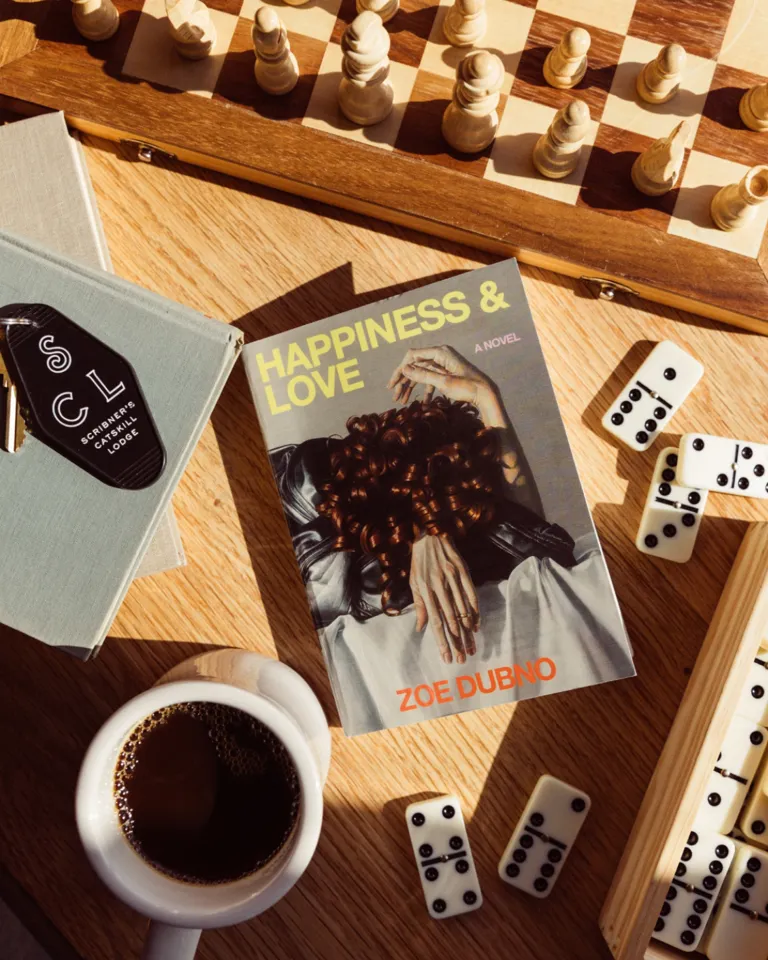
Zoe Dubno’s debut novel is a one-night plunge into the art world’s obsession with surfaces
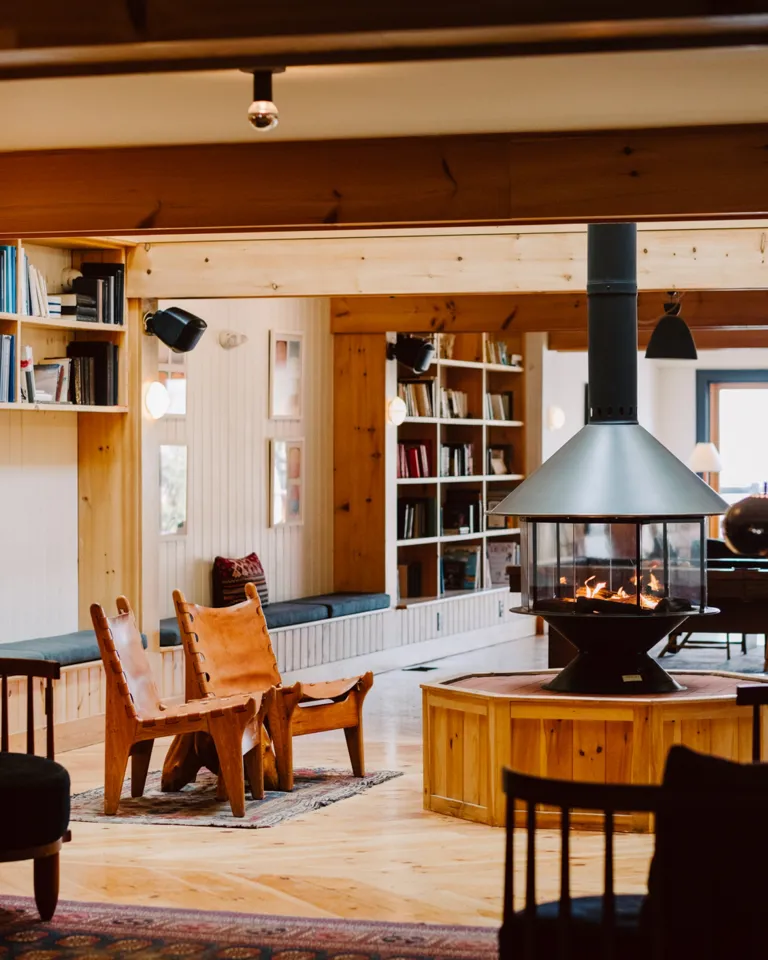
Scribner's second literary retreat include a Q&A with Zoe, a bookshop pop-up, a cookbook dinner, quiet reading hours and time to explore
I found the art world to be a fascinating setting because it brings together such a wide range of people—different backgrounds, levels of creativity, intelligence, and conscience—all coexisting to make the ecosystem work. I’ve spent a lot of time around that world, through friends and proximity, and I’ve always found it both intriguing and a bit shocking. It’s very different from the literary world, which made it even more interesting to explore as a writer.
I was also inspired by the “Woodcutters” by Thomas Bernhard, a 1980s novel set in the music and theater scene. My book is in conversation with his. He captured the cultural world of 1980s Austria in a way that felt parallel to what I wanted to depict today.
Both the Woodcutters and my book are written in a single paragraph and unfold over a dinner party among old friends who haven’t seen each other in years. Reading Bernhard’s novel, I was struck by how modern it felt nearly 50 years later. The dynamics he explores—people trying to “own” others through patronage, relationships defined by extraction rather than generosity, a world obsessed with cultural sophistication while often being its opposite—still resonate today.
I was also drawn to the structure. That single, unbroken paragraph from a fixed perspective feels nontraditional but allows incredible depth. The narrator can drift from memories to judgments to reflections on art, all while remaining physically in one space. That tension really appealed to me.
Bernhard’s attention to design fascinated me too. His descriptions of the apartment are so vivid you can almost see every piece of furniture and art, each charged with meaning. I miss that kind of specificity in contemporary novels. I wanted to capture the same coded language of objects in my book: the art collector’s house upstate, the Bowery loft, the carefully chosen pieces that reveal who someone is trying to be. People often say, “I’ve been in that apartment!” or “Is this about my friend so-and-so?” It never is, but of course they recognize it, because we all know that world.
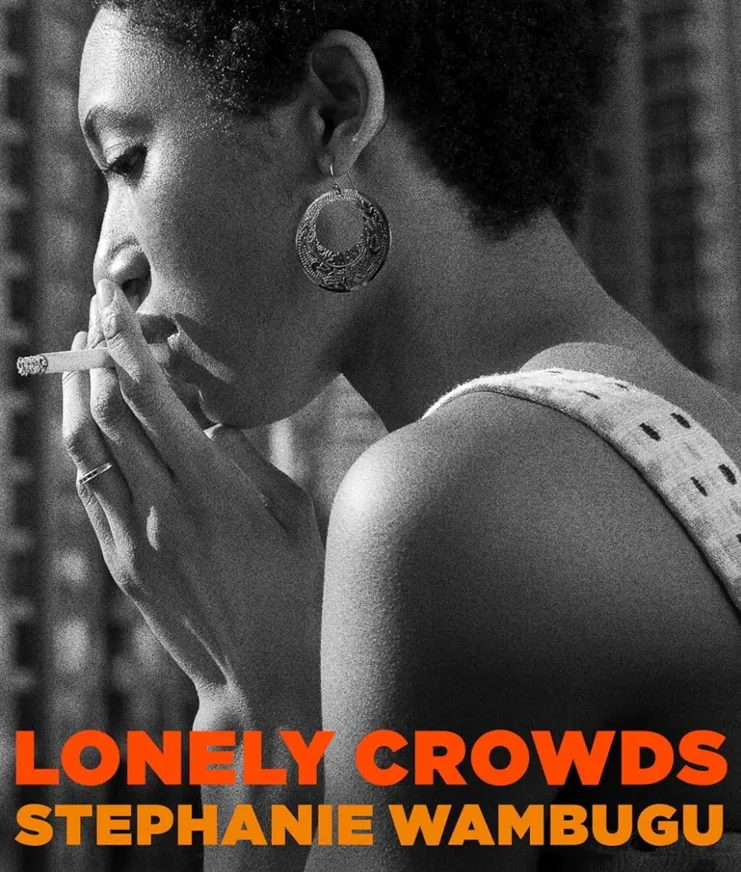
Lonely Crowds by Stephanie Wambugu
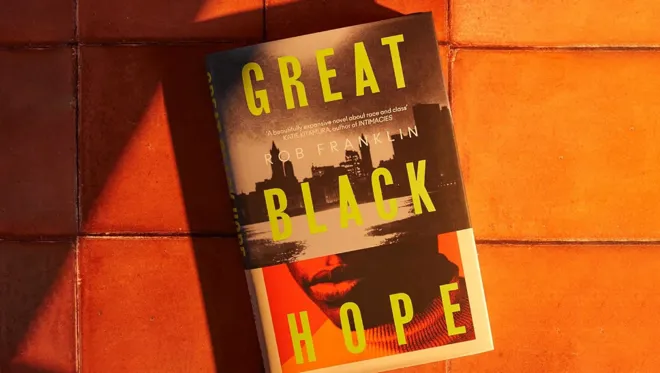
Great Black Hope by Rob Franklin
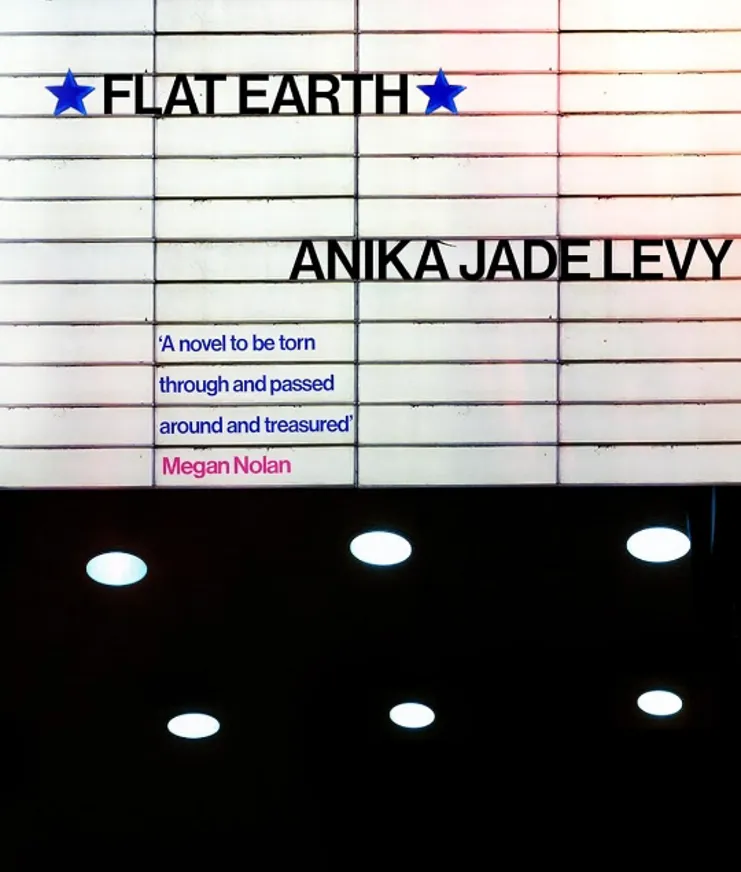
Flat Earth by Anika Jade Levy
Trying to do things for their own sake, rather than for how they’ll be received, feels like a small but real counterbalance. Of course, there are far greater problems in the world, but within the art world, I find it troubling how often artists—especially artists of color or those from less privileged backgrounds—are asked to mine their identities for the consumption of the wealthy. Those same collectors, who often made their fortunes in questionable ways, get to feel virtuous for “supporting” diverse voices.
We’ve seen this dynamic play out with the Sacklers and the opioid crisis, or Warren Kanders, the former Whitney Museum vice chairman who profited from selling tear gas. So many museum wings bear the names of people tied to terrible things. Art, which should be about beauty, imagination, and meaning, has become inseparable from politics and power.
The best the cultural sphere can do is keep exposing those contradictions—keep asking who funds what, and why. It’s complicated, because artists and institutions need support. But ultimately, we need a world where that support doesn’t depend on billionaires trying to redeem the systems they helped break.
I’m not used to being in the spotlight, and it has been very strange to do photo shoots in fashion clothes. I’ve been a writer for a long time, used to being on the other side, so it’s opened my eyes to how the people I interact with experience the world. It’s also odd to see fragmented bits of information about myself come out in public and be pieced together as if they represent a complete picture. People make assumptions about me based on articles or the book, but they don’t really know me. It’s a bizarre shift from being a full human to becoming a flat, two-dimensional representation on a page.
Being a reflective writer requires quiet and stillness, a mental space to focus. The public attention is disruptive, but it’s not something I resent. My priority is to return to writing and creating.
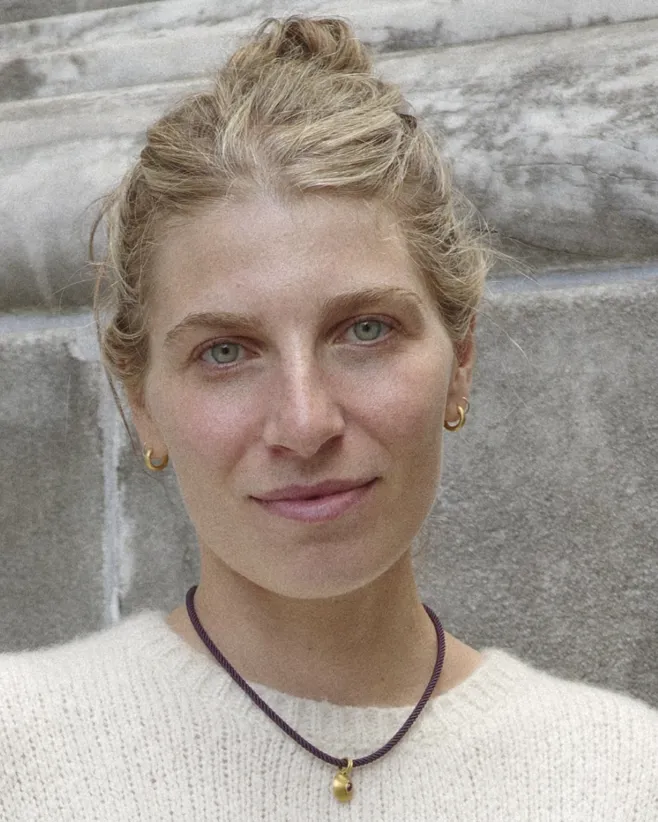
Zoe Dubno
Jesus. I’m not Christian, but it would be incredible to meet him and ask a few questions. I’d love to get a straight answer on some of the big moral and human questions—things that have shaped centuries of thought and action.
I think I’d want to get to the bottom of the historical story. I’d ask him to comment on the number of fundamentalist Christians today and get him on the record about a few things. Imagine hearing it straight from the source—that would be something.
I’ve found that when I meet writers I admire, it can go either way. Sometimes it’s wonderful, but other times you wish you were just reading their books because that’s where the best of them really lives—especially with the male ones. And I get it, when everyone keeps telling you you’re brilliant, it’s hard not to start believing it. I think I’d rather meet the writers before they ever wrote anything good. Or Jesus.
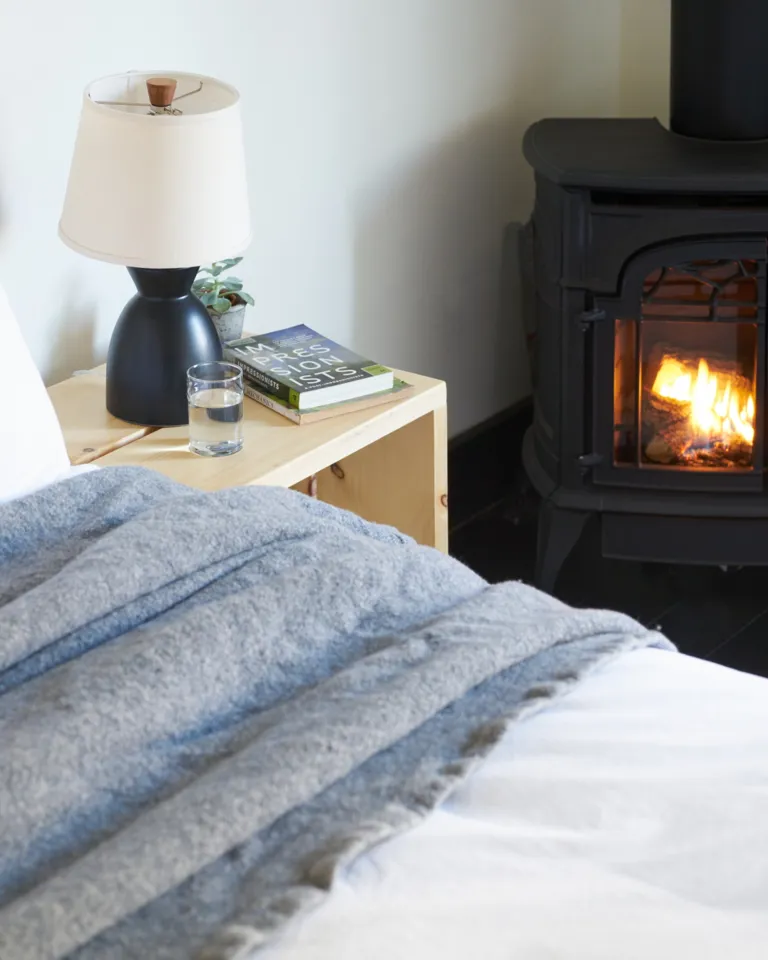

Scribner’s keeps the Catskills’ creative spirit alive with artist residencies, book clubs, and cultural gatherings
I’m not much of a planner when I travel. I rely on friends who are great at research, and I usually just wander, look at the map, and pick what catches my eye. Maybe it’s because I don’t drive—I’m happy to go wherever.
I live in the city, so I’m most excited to be in nature. I love walking, being on a boat, and enjoying good food and beautiful produce. Honestly, I’d be happy doing nothing: sitting outside, reading, eating well, and sleeping in, especially with construction outside my window at home.
I grew up on the Upper West Side and love it for being the city with a neighborhood feel. I know tons of people and always say hello as I walk around. The city has changed a lot over 30 years, losing many small businesses. When I was a kid, there were no chain stores here—it caused quite a stir when Barnes & Noble and Starbucks arrived. I’ve always loved that the Upper West Side held onto its family bakeries and little shops, which reminds me of Upstate New York, still a normal place unlike so much of American suburbia filled with strip malls.
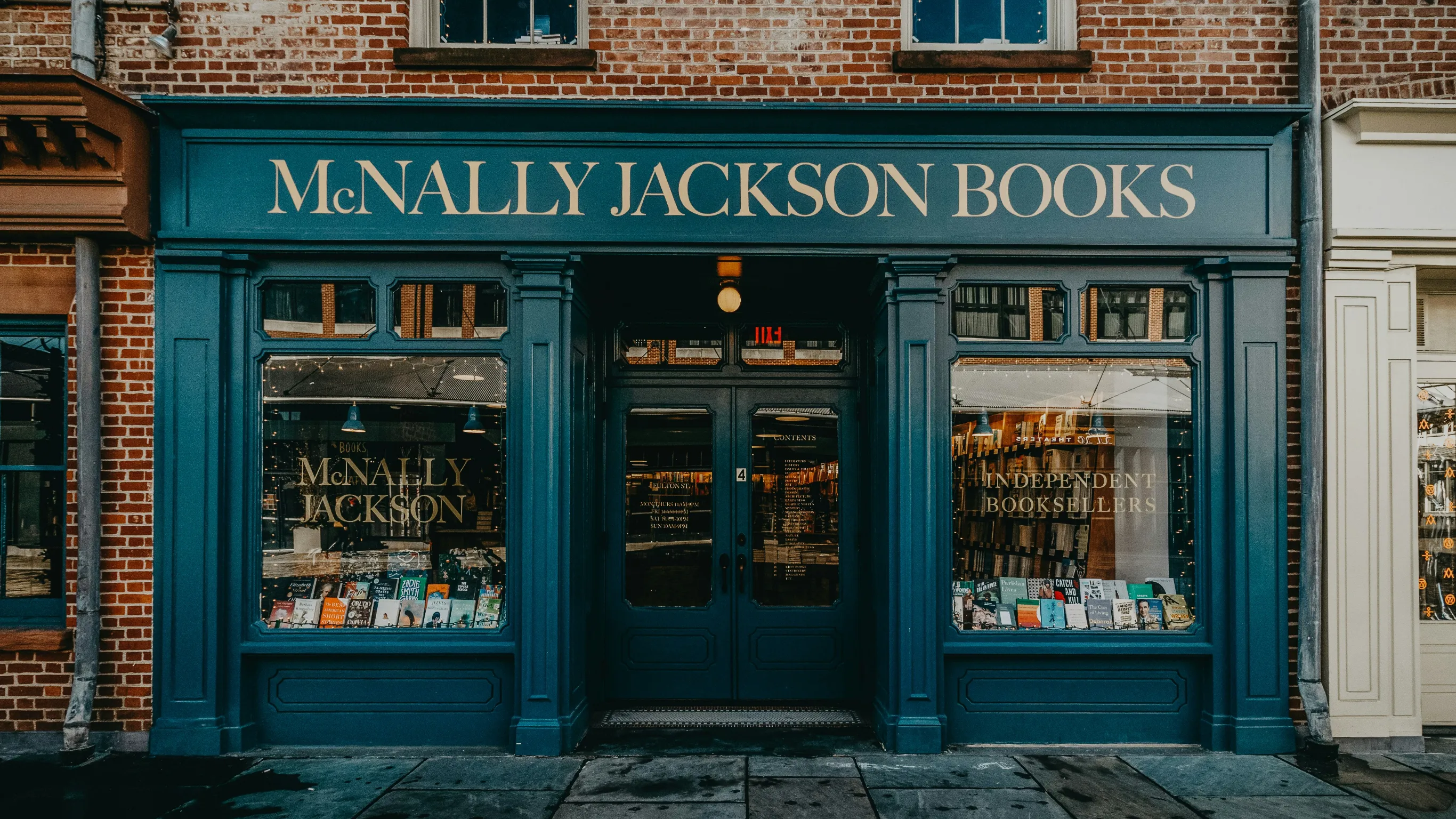
1 Rockefeller Plaza, New York, NY 10020
It’s amazing how much an independent bookstore can hold.
2915 Broadway New York, NY 10025
Uptown in my neighborhood, it’s affiliated with Columbia but also stocks contemporary fiction. Remaindered books often end up here, so there’s a giant sale table full of hardcovers, plus tons of art, philosophy, and political theory.
2246 Broadway, New York, NY 10024
My favorite used bookstore on the Upper West Side. It’s chaotic, barely alphabetized, with books stacked on top of books. I spent much of my childhood digging through it and finding gems. The neighborhood is hyper-literate, so when someone passes, their collection often ends up here.
Join Zoe Dubno at Booked In at Scribner’s, featuring author talks, fireside discussions, shared meals, and plenty of time to read, write, and connect in the mountains.